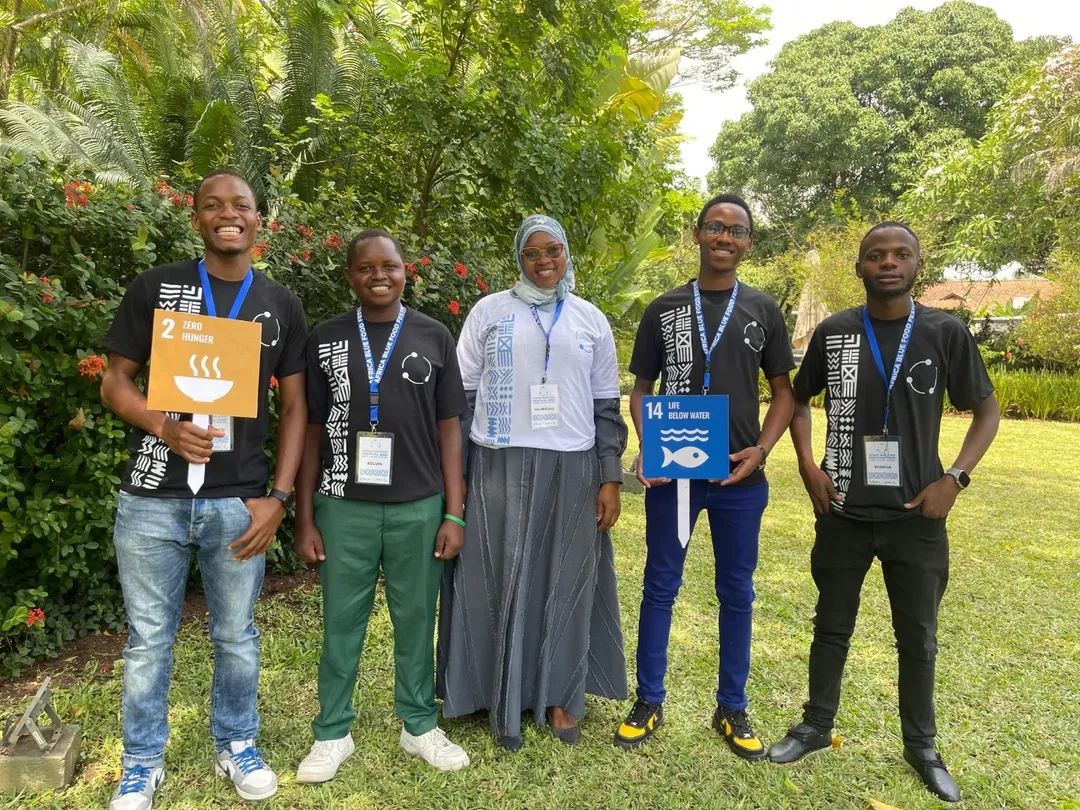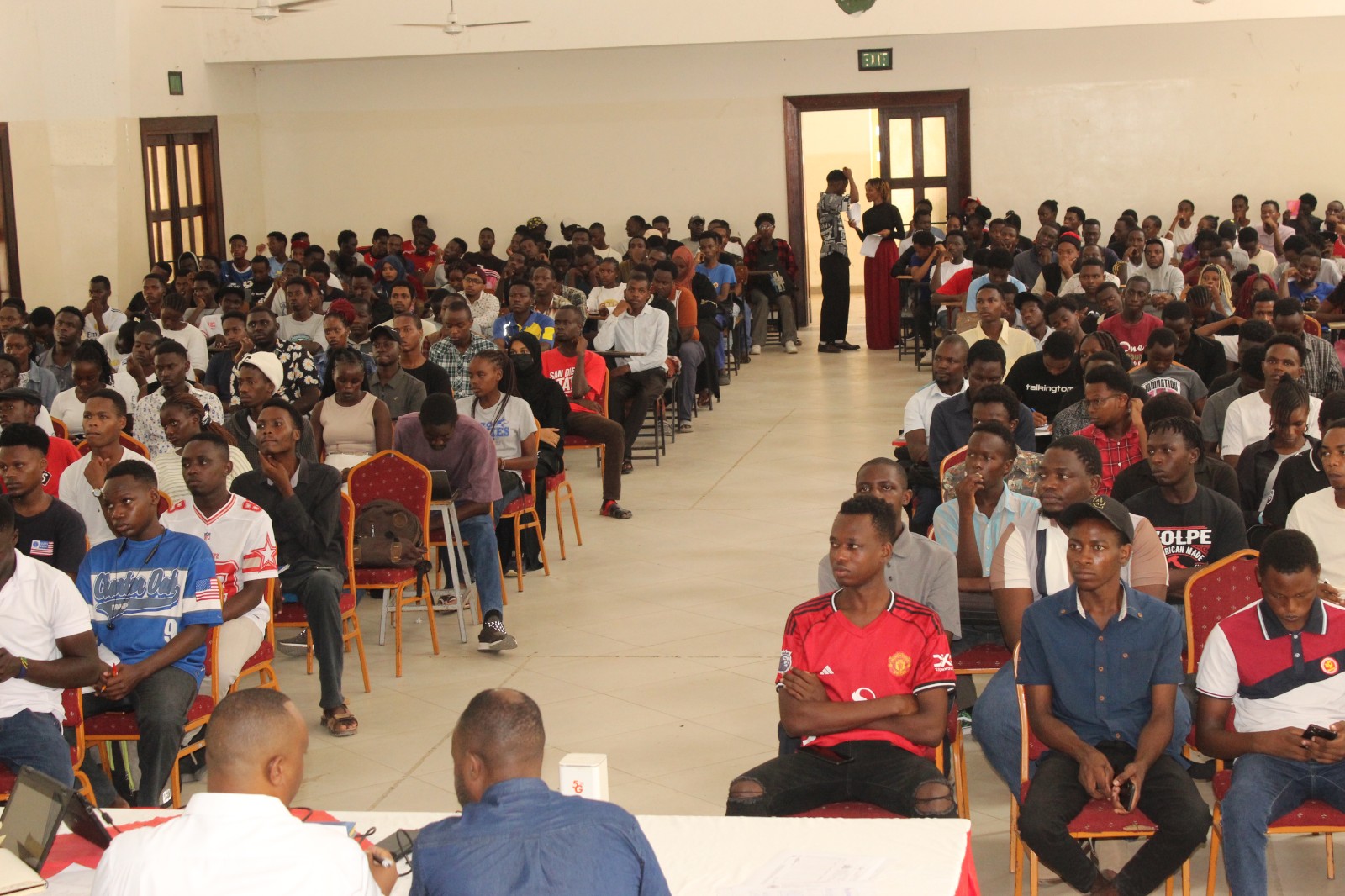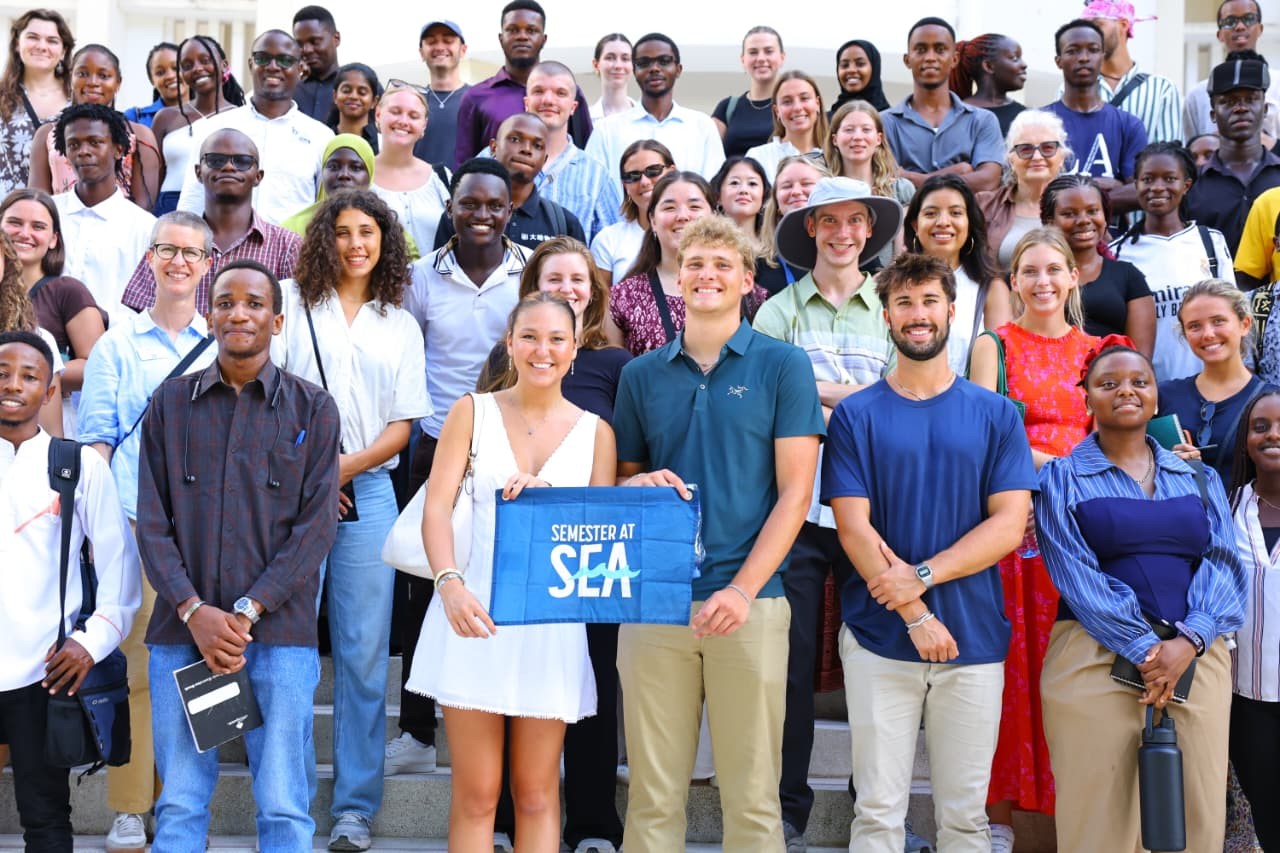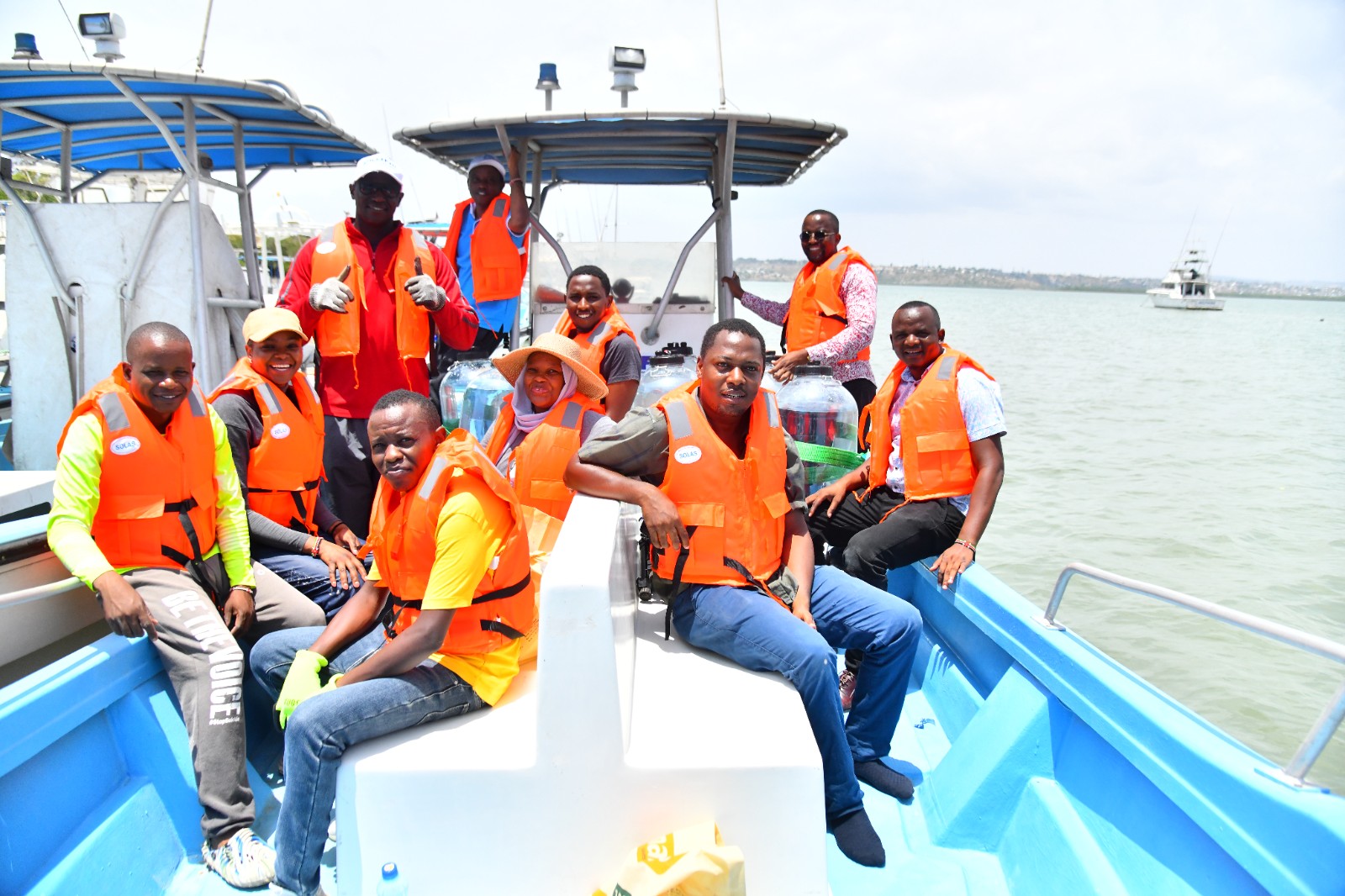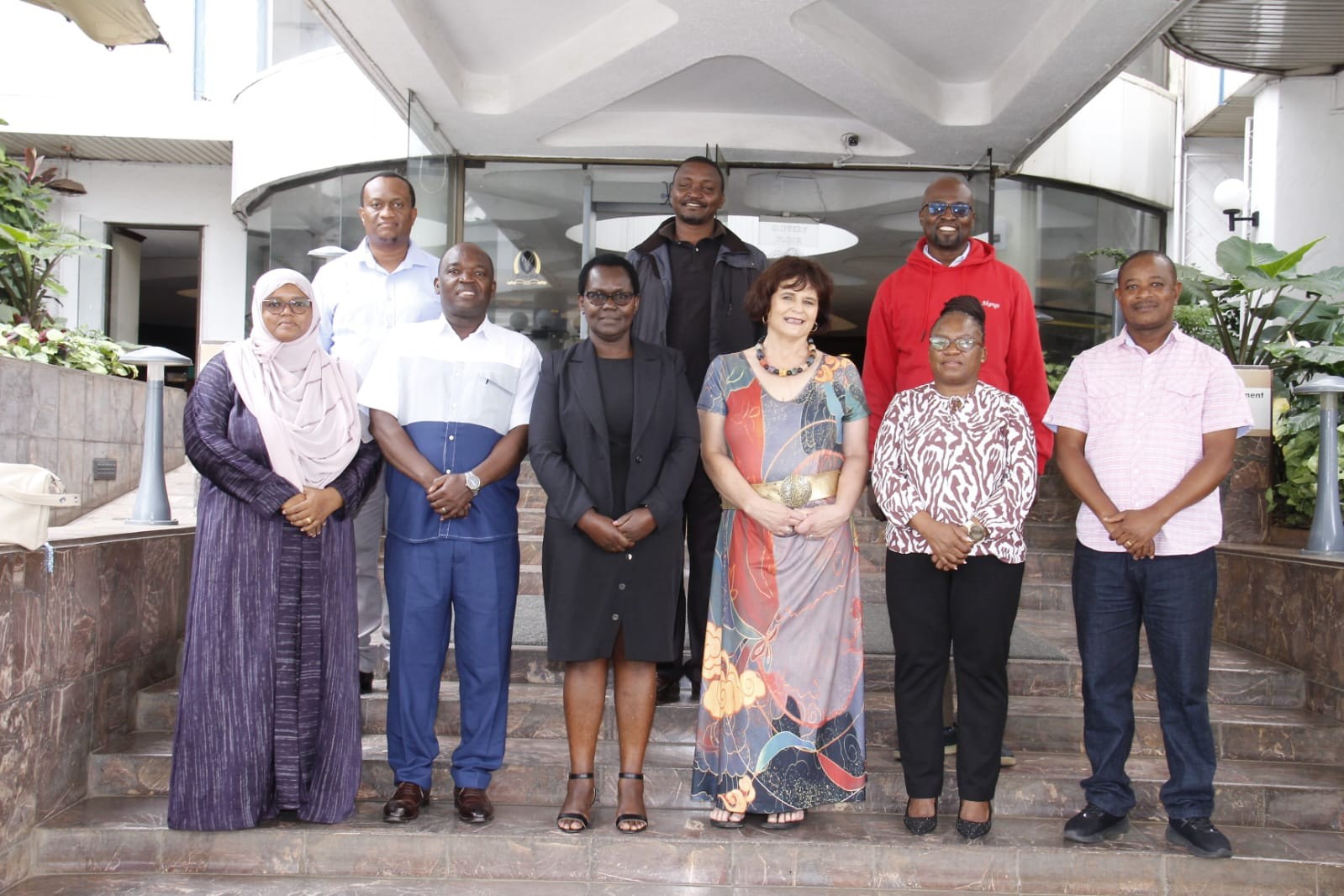The Technical University of Mombasa (TUM) was proudly represented at the Africa Blue Food Festival, which took place in Dar es Salaam, Tanzania, from September 22nd to 26th. This dynamic, youth-led event gathered students, innovators, and climate action advocates from across East Africa under the theme "Celebrating Africa Blue Food Sovereignty." Participants enjoyed a week filled with knowledge sharing, community engagement, and the showcasing of blue innovations.
The Africa Blue Food Festival was organized by Ocean Climate Innovation Hub Tanzania, in partnership with OCI Hub Kenya, the University of Dar es Salaam, and the Technical University of Mombasa, among others.
The festival officially kicked off on Day 1 at the picturesque Mbudya Island, where young innovators exchanged ideas on how to create inclusive, climate-smart, and sustainable blue solutions. Key themes included blue economy awareness, inland community inclusion, the role of youth in ocean conservation, and scaling up school-based climate clubs.
On Day 2, participants visited Bagamoyo Island, where they engaged in hands-on seaweed planting with local farmers and learned about sustainable harvesting methods. This was followed by a visit to a women-led mangrove beekeeping project, which highlighted the intersection of biodiversity, coastal protection, and alternative livelihoods; key pillars of a resilient blue economy. Later in the day, youth innovators pitched their projects, including four outstanding students from the Technical University of Mombasa (TUM), supported by the Ocean Climate Innovation (OCI) Hub Kenya.
Floating Photovoltaic Installation System
Kelvin Mutunga and Joshua Moenga, Bachelor of Science students in Electrical and Electronic Engineering, developed a renewable energy solution that places solar panels on floating platforms over lakes, dams, or reservoirs. This system reduces land-use pressure, utilizes underused water surfaces, and operates without harming aquatic ecosystems. It provides a clean energy solution that is both sustainable and scalable.
Solar-Powered IoT Distress Beacon
Saidi Mohamed Mwaraenye, a Diploma in Nautical Science student from the Institute of Maritime and Seafaring Studies, presented a life-saving innovation for small-scale fishermen. His solar-powered IoT beacon sends emergency distress signals from the sea to land, enabling swift rescue coordination and enhancing maritime safety along Kenya's coastline.
Nguvu Blue Blend
This is a natural protein powder by Benard Kioko (TUM student pursuing Bachelor of Technology in Applied Chemistry-Analytical option) and Halima Swaleh (OCI Hub Kenya), made from seaweed (sargassum) as its key ingredient providing essential minerals and omega-3s. Other local ingredients added include: soy, groundnuts, baobab, coconut, and dates. The blend supports healthy weight loss and muscle gain, offering an affordable, sugar-free alternative to imported protein powders. By using local blue foods, it promotes responsible consumption and the growth of the blue economy.
Day 3 was marked by a colourful SDG Flag Day celebration at the Netherlands Ambassador’s Residence. The event commemorated 10 years since the adoption of the Sustainable Development Goals (SDGs) by all 193 UN member states. Youth representatives from the three countries joined dignitaries in raising the SDG flag as a symbol of global solidarity and commitment.
Present were H.E. Marjo Crompvoets (Netherlands Ambassador), Susan Ngongi Namondo (UN Country Representative), Christine Grace (EU Head of Delegation), Mr. Will Grunt (UK High Commission representative), and Chikulupi Kasaka (host). The ambassador urged the youth to remain engaged, saying, “You are not just beneficiaries of the SDGs; you are the drivers of change. Your energy, innovation, and passion are crucial in tackling the challenges we face.”
UN Country Rep Ms. Susan Ngongi Namondo echoed these sentiments, encouraging youth to recruit more peers into the ocean, climate, and blue economy movement.
The day also featured a thought-provoking debate between mixed-country youth teams on SDG Goals 1–8 and 9–17. TUM’s very own Innovation Club Chair, Ms. Bibiye Mahmud, emerged as the best speaker, a proud moment for both the university and Kenya.
Later, participants paid a visit to East Africa Television, where they engaged in discussions on the SDGs and shared their visions for a more sustainable and inclusive future.
The Africa Blue Food Festival wrapped up on a high note, leaving participants inspired and energized to drive blue economy efforts within their communities. Through collaborative learning, cultural exchange, and the showcasing of impactful innovations, the festival highlighted the power of youth in shaping sustainable coastal futures. As TUM continues to champion climate action and blue innovation, the presence and performance of its students at this continental event reaffirm the university’s growing role in regional sustainability efforts.

